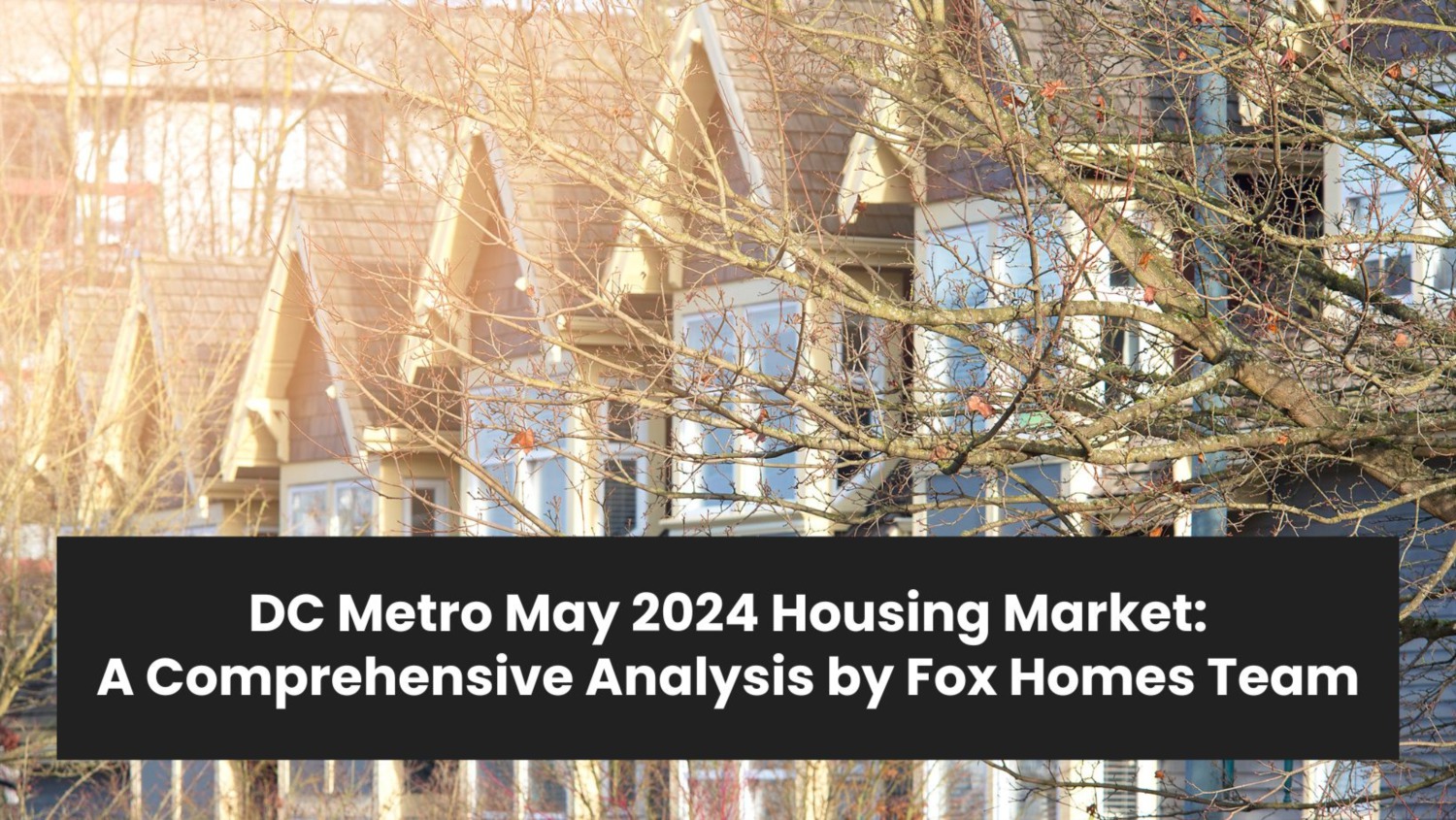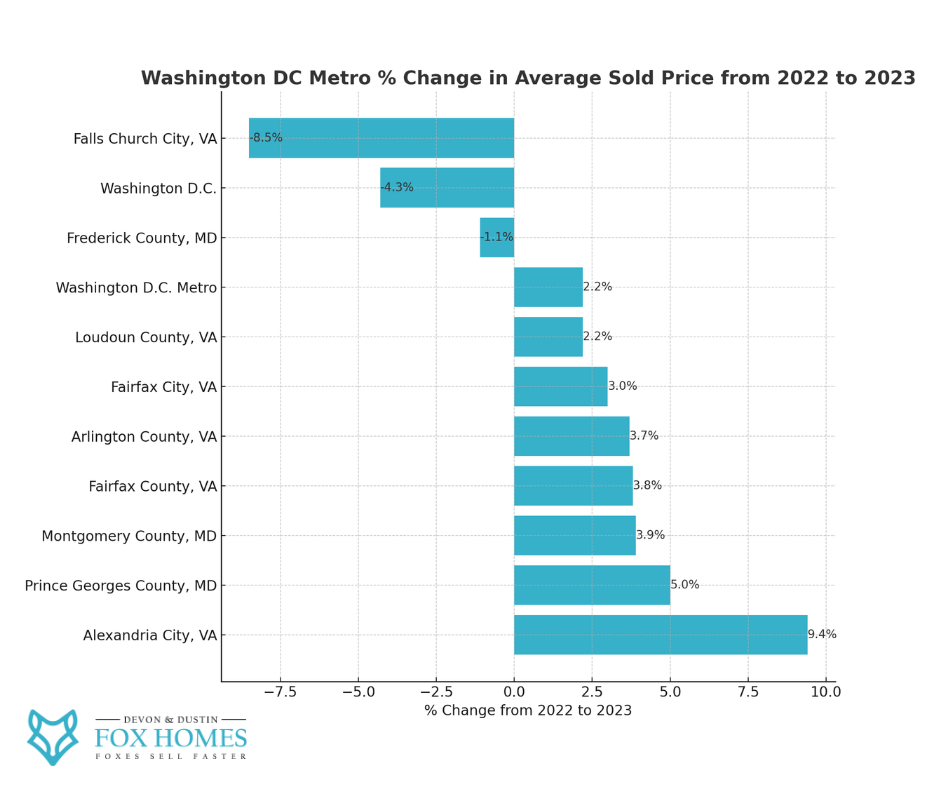Are we standing at the precipice of a housing market crash in Washington DC, or are these just the murmurs of an industry adjusting to new norms? The complexities of the real estate market in the capital require careful analysis, a sentiment likely echoing among many homeowners contemplating a speedy property sale. Today, we dissect the top trends influencing the DC housing market and outline strategic measures to safeguard property sales. Given our unique position in the nation’s capital, understanding these trends is not only prudent but essential.

This image is property of assets.site-static.com.
Understanding the Dynamics: The Washington DC Housing Market
The real estate market in Washington DC is not just a microcosm of national trends; it operates under its unique parameters shaped by local policy, federal influence, and demographic shifts. These factors converge to create a real estate landscape that frequently mirrors broader economic and political developments.
DC’s housing market is characterized by its ebb and flow, marked by periods of rapid appreciation followed by adjustments. This cyclical nature raises questions about whether another adjustment could signify a crash or merely a natural progression of market forces. As homeowners, understanding these dynamics is fundamental in making informed decisions about selling our properties.
The Impact of Political Climate
The federal government is undeniably DC’s heartbeat, influencing everything from employment rates to housing demand. During times of political shift, demand tends to fluctuate significantly, leading to corresponding changes in the housing market. For instance, government policies aimed at curbing inflation or incentivizing housing development can stimulate or temper market activity, affecting how quickly homes can sell.
Political shifts can also deter or attract buyers and investors, thus impacting housing prices and transaction times. In this context, staying informed about political developments provides an edge in anticipating market movements.
Economic Factors at Play
Economic indicators such as unemployment rates, interest rates, and economic growth directly impact the housing market. The Federal Reserve’s monetary policies, for example, play a critical role. When interest rates are low, borrowing costs decrease, making it easier for buyers to finance homes, thus boosting demand. Conversely, rising interest rates can dampen this enthusiasm, slowing down turnover and affecting sales strategies.
In the DC context, a robust job market often indicates a thriving real estate market since well-paying jobs attract buyers looking to establish roots near employment centers. Anticipating shifts in these economic indicators can thus greatly aid homeowners in timing their sales strategically.
Demographic Changes
Demographic trends profoundly impact housing demands. Washington DC, with its rich cultural tapestry and constant influx of new residents, sees regular changes in housing needs. Whether it’s young professionals driven by career opportunities or retirees seeking proximity to cultural amenities, these diverse groups influence market dynamics differently.
Recognizing these demographic patterns can help us tailor our sales strategies to meet emerging demands. Adjusting to the needs of potential buyers can expedite the sales process.
## Trend Analysis: Top Five Factors Shaping the Market
While understanding the broader dynamics is crucial, honing in on specific trends provides insights into day-to-day real estate decisions. Let’s explore five defining trends currently influencing the DC housing landscape.
1. Inventory Constraints
The issue of limited housing inventory has been a longstanding challenge in DC. Even under ordinary circumstances, the availability of homes fails to meet demand, a factor exacerbated by pandemic-induced slowdowns in construction and the supply chain. This low inventory landscape naturally pushes prices upward and can be enticing for sellers who capitalize on high demand.
However, understanding the nuances here is important. For dynamic pricing, sellers should consider local market reports and trends to understand the peak selling conditions better.
2. Rising Interest Rates
Interest rates are a double-edged sword. As the Federal Reserve navigates inflation, it often raises interest rates, which in turn affects mortgage rates. Higher interest rates deter potential buyers who find financing less affordable, potentially slowing the market.
Homeowners intending to sell quickly must be mindful of how rate changes could influence buyer behavior. Emphasizing cash offers or preparing to negotiate terms that can soften the financial load on buyers can be advantageous in maintaining interest and transaction speed.
3. Shifts in Buyer Preferences
In recent years, buyer preferences have shifted significantly. Trends such as remote work have altered demand, with many seeking homes equipped with office space or in quieter suburban settings that offer more room and affordability.
Sellers prepared to adapt to these preferences—either by staging homes to appeal to remote workers or highlighting proximity to parks and leisure areas—can enhance their marketability.
4. Technological Advancements in Real Estate
The way homes are bought and sold has evolved with technology. Virtual tours, digital open houses, and online closing processes have reshaped how transactions occur. By leveraging these technologies, sellers in DC can reach a broader audience, often conducting sales faster and with fewer geographical limitations.
Embracing these advancements means sellers can capitalize on a tech-savvy buyer base, essential in a city known for its technological drive.
5. Urban Development and Zoning Policies
Washington DC continuously evolves through urban development and changing zoning laws. New projects and the revitalization of neighborhoods can significantly alter local real estate dynamics, often increasing property values.
Sellers can benefit by staying informed about upcoming developments that might make their property more appealing. Access to information about planned urban changes or rezoning efforts can position sellers on the front line, giving them an advantage in foreseeing demand shifts.

This image is property of i2.wp.com.
Navigating and Safeguarding Your Sales Strategy
Having parsed the market trends, the question becomes: how do we, as DC homeowners, position ourselves to thrive amid potential volatility? Implementing effective sales strategies is pivotal in achieving favorable outcomes.
Crafting a Strategic Sales Plan
To sell swiftly and profitably, having a strategic plan grounded in current market realities is necessary. This should include a thorough market analysis, understanding competitive advantages, and calculating the ideal pricing strategy. A well-researched plan anchors expectations and improves negotiation success.
Pre-sale Preparations: Setting the Stage
Preparing a home for sale is a multifaceted endeavor. Beyond repairs and aesthetic improvements, understanding what buyers in the DC area prioritize can set the home apart. Small upgrades that resonate with buyers’ desires—such as energy-efficient features or smart home technology—can enhance appeal.
Leveraging Instant Cash Offers
In a market that may experience flux, instant cash offers present a viable solution for those needing quick transactions. These offers streamline the selling process, bypassing lengthy negotiations and potential buyer financing issues. As we seek to sell our DC properties fast, cash offers can deliver both speed and security, mitigating the risks associated with a potentially turbulent market.
Selecting the Right Partners
Partnering with experienced real estate professionals or firms specializing in fast sales, like Fast Cash DC, can provide invaluable insights and services tailored to the quick-sales market. Their expertise can significantly reduce the time on market, especially when navigating the complexities of the DC housing sector.
Emphasizing Flexibility in Deals
Flexibility is a critical asset in negotiations. Being willing to adjust terms to meet buyer needs, such as closing timelines or including certain home features, can close deals swiftly. In uncertain markets, adaptability proves to be a powerful tool in engaging with prospective buyers.

This image is property of public.tableau.com.
Conclusion: Charting a Course Through the DC Housing Landscape
With our analysis complete, we recognize that while the notion of a housing market crash can raise concern, being armed with knowledge and strategy is our best defense. The Washington DC real estate market, with its distinct attributes, offers ample opportunities for those looking to navigate its complexities with informed foresight. By understanding these dynamic trends and potential future shifts, we are better positioned to safeguard and accelerate our sales, ensuring our journeys through the housing market yield successful outcomes.
For homeowners in the nation’s capital, success is not merely about the transaction; it is about strategically navigating Washington DC’s vibrant and ever-evolving marketplace to achieve timely, profitable sales.

This image is property of assets.site-static.com.

